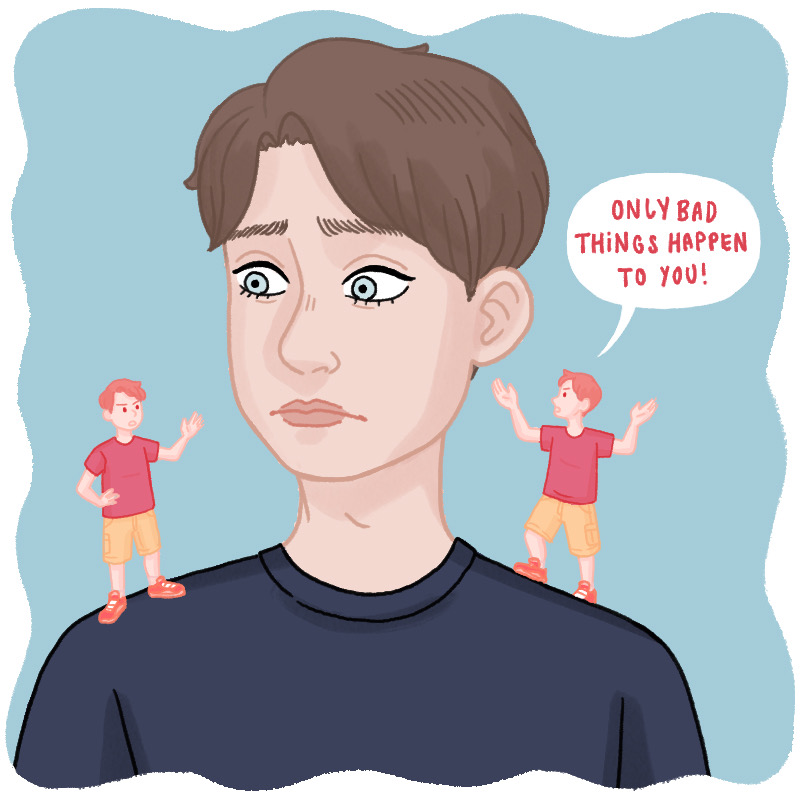





Chapter 1. Unhelpful Thoughts Copy

Brian strides through your office door. He pushes his phone into his pocket as he dives onto the couch. His demeanor retains the apprehension from last week, but he seems ready to work.
You set your notebook down and smile widely. “Hi Brian, nice to see you again, how are you doing today?”
“Hi,” he responds, quickly, “I’m…so-so.”
“What’s going on?” you ask.
Brian shrugs. “I dunno, nothing special.”
“Brian, where are you on your feelings thermometer right now, from 1 to 10, with 10 being the worst?”
He shrugs again. “Maybe 2 to 3.”
“So, not too bad?”
“No, just…as usual.”
You nod and repeat, “As usual, OK.” You glance at your notepad and continue after a beat, “Last time we talked about different events that have happened in your life, and some of them were really difficult…”
Brian nods emphatically and looks down, “Yeah.”
“These difficult experiences from your life have caused you to have certain feelings and thoughts that are impacting how you are doing right now. Today, we will work together on your trauma-related thoughts and feelings.”
He squints a little, taking in what you just explained and then states, “OK.”
You offer him a choice, “Which one would you prefer to do first: thoughts or feelings?”
“Thoughts maybe.”
“Alright,” you smile. “Let’s talk about the thoughts! So, Brian, in our previous session you mentioned that you think that only bad things happen to you.”
“Yeah, that’s true,” he exclaims, “only bad things happen to me!”
“It might be true, but today, we’ll examine these thoughts to see if they are entirely accurate.”
He raises his eyebrows and exclaims, “I didn’t know we could do that!”
“Many times,” you begin, “after bad experiences, our thoughts and beliefs about ourselves, people around us, or the world change in a negative way. There might be some truth in these thoughts, but they are not always 100% accurate. These thoughts might also have been helpful in the past—they were your natural responses to difficult circumstances after all—but now, they might be unhelpful.”
A faint scowl hovers on Brian’s face and he starts cracking the knuckles on his right hand. “So, I think that way now because I had trauma?”
“Yes. You think that, ‘Only bad things happen to me’ because many bad things happened to you in your past. But now, lots of things have changed and you are living in a safe environment with your grandma. Continuing to think in this way might get in the way of having a healthy relationship with her, might prevent you from making new friends, might cause you to have bad grades at school, or to worry about the future.”
“Oh.” Brian looks downtrodden.
You brighten your tone, “That’s why it’s important that we challenge these unhelpful thoughts!”
“Oh, how do we do that?” Brian looks up.
